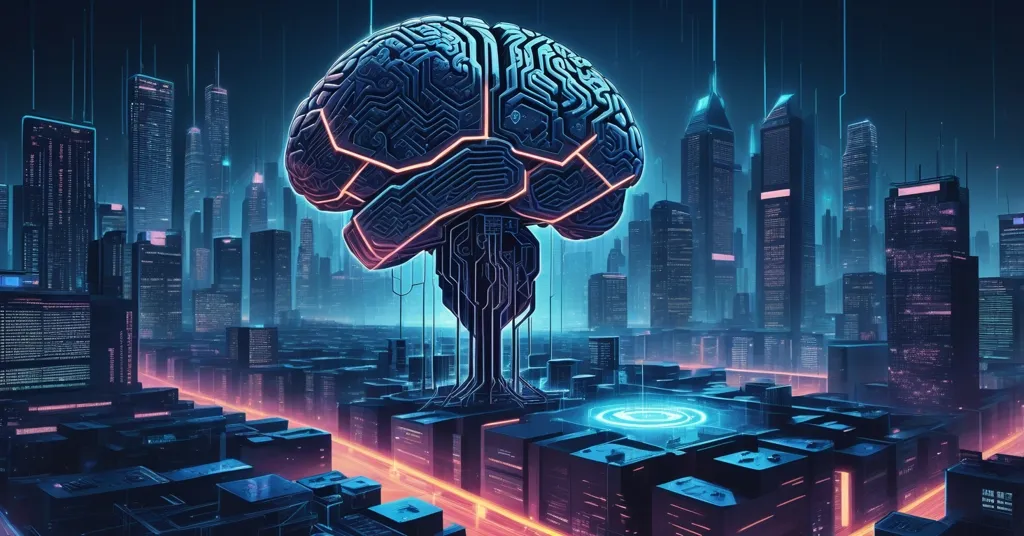OpenAI’s $200M DoD Deal: AI Power Boost or Crypto Privacy Threat?

OpenAI Lands $200 Million Deal with US Department of Defense: Implications for AI, National Security, and Crypto Freedom
OpenAI, the brain behind ChatGPT, has secured a massive $200 million contract with the US Department of Defense (DoD) for a one-year pilot program to weave artificial intelligence into the fabric of national security and government operations. This isn’t just a tech upgrade—it’s a seismic shift that could reshape how the military and federal agencies function, while raising thorny questions about privacy, power, and the decentralized values we champion in the crypto world.
- Contract Snapshot: $200 million, one-year pilot to embed AI in national security and administrative roles.
- Key Aims: Boost cybersecurity, enhance healthcare for military personnel, and streamline government tasks.
- Crypto Concerns: Potential threats to privacy and decentralization as centralized AI gains ground in government hands.
Breaking Down the $200 Million Deal
This partnership marks a significant leap for OpenAI as it rolls out a new division, OpenAI for Government, specifically tasked with managing public sector initiatives. Under this banner, they’ve introduced ChatGPT Gov, a secure version of their flagship chatbot tailored for government employees. The focus is on practical outcomes: think AI triaging medical resources for soldiers or slashing through bureaucratic red tape with automated workflows. A pilot in Pennsylvania offers a glimpse of the potential—state employees reportedly saved over 105 minutes daily on routine tasks using OpenAI’s tools. That’s efficiency on steroids, no question.
The contract, described as having a “ceiling” of $200 million, isn’t a blank check but a maximum budget for testing AI across military and civilian functions. OpenAI’s reach doesn’t stop at the Pentagon; they’re already working with heavyweights like NASA, the National Institutes of Health (NIH), the Air Force Research Laboratory, and the Treasury Department. Add to that a 2024 collaboration with defense contractor Anduril Industries on AI-powered anti-drone systems, and it’s clear OpenAI is becoming a linchpin in Washington’s tech arsenal as detailed in their government-focused initiatives.
To cement this bond, OpenAI has stacked its ranks with government insiders. They’ve tapped a former senior Pentagon official to steer national security policy and brought the ex-head of the National Security Agency (NSA) onto their board. Meanwhile, the US military is pulling Silicon Valley closer than ever—four tech titans, including OpenAI’s Chief Product Officer Kevin Weil, were recently sworn into the Army Reserve as lieutenant colonels under Detachment 201. Joined by Meta’s CTO Andrew Bosworth, Palantir’s CTO Shyam Sankar, and former OpenAI exec Bob McGrew, their role is to advise on scalable tech solutions for national defense. This isn’t just collaboration; it’s a strategic fusion of innovation and military muscle, fueled by the need to outpace rivals like China and Russia in the AI race.
“We see this as an opportunity to demonstrate the safe, responsible deployment of AI in the service of national interest.” – OpenAI
AI in National Security: The Good, the Bad, and the Ugly
At its core, this deal is about harnessing AI—specifically generative AI, which can create content, analyze data, and predict outcomes—to revolutionize national security. Imagine AI systems detecting cyber threats in milliseconds, far outstripping human analysts, or optimizing healthcare access for troops by managing medical records with pinpoint accuracy. The upsides are undeniable: faster responses, smarter resource allocation, and potentially lives saved in high-stakes scenarios.
But let’s not get starry-eyed. The flip side is a Pandora’s box of risks. Integrating AI into government operations, especially military ones, opens the door to transparency issues and ethical concerns. History offers a grim reminder—think back to the NSA’s PRISM program, exposed in 2013, where mass surveillance became the norm under the guise of security. Centralized AI, with its ability to process vast datasets, could amplify such overreach, turning tools meant for protection into weapons of control. And for us in the crypto space, where freedom and anonymity are sacred, that’s a gut punch.
Beyond the tech itself, there’s murmur of unease within OpenAI’s own walls. Unverified online chatter suggests some employees are rattled by the military tie-up, tossing around dystopian references like “Skynet” from the Terminator franchise. While not confirmed, it hints at a deeper clash between corporate strategy and personal ethics—a tension that mirrors broader societal debates about AI’s role in warfare and governance. OpenAI insists it’s committed to “democratic values,” but without independent checks, that’s just a polished soundbite.
The Crypto Connection: Is Our Privacy Under Siege?
For Bitcoin maximalists and altcoin enthusiasts alike, this deal hits close to home. Centralized AI in the hands of the DoD could easily morph into a tool for mass surveillance, directly challenging the anonymity that cryptocurrencies like Bitcoin fight to preserve. Picture this: AI algorithms trained to monitor financial transactions under the pretext of “national security,” flagging every Bitcoin transfer as a potential threat. We’ve seen echoes of this before—look at the Silk Road bust, where law enforcement pieced together blockchain data to track users. Now, imagine that on steroids with AI’s pattern-recognition power, raising serious privacy concerns.
This isn’t mere paranoia. The push for cybersecurity enhancements in this contract could spill over into digital finance, especially as governments worldwide flirt with central bank digital currencies (CBDCs). Unlike Bitcoin, which thrives on decentralization, CBDCs are often built for control, and AI could supercharge their surveillance capabilities. Will the Pentagon’s AI focus pave the way for tighter grips on alternative financial systems? It’s not a stretch to think so. Our Satoshi-given right to financial privacy could be facing a 51% attack from the state itself, with broader implications for privacy rights.
Let’s play devil’s advocate for a moment. Could AI actually bolster crypto’s defenses? Potentially. If harnessed responsibly, AI might detect hacks on decentralized networks faster or optimize wallet security for Bitcoin users. But the catch is in that word—responsibly. Given the track record of government-tech partnerships, banking on benevolence feels like trusting a rug-pull artist with your seed phrase.
AI Meets Blockchain: Synergy or Showdown?
Zooming out, there’s a fascinating intersection between AI and blockchain tech that’s worth dissecting. On one hand, these forces could complement each other. AI might optimize smart contracts on platforms like Ethereum, making decentralized apps (dApps) more efficient by predicting user behavior or automating complex processes. It could also enhance security for Bitcoin transactions by spotting anomalies in real-time—think a guard dog for your digital vault. Some projects are already tinkering with this; protocols blending AI and blockchain for data integrity are popping up in niche corners of the space, though they come with their own privacy risks.
On the other hand, the philosophies clash hard. Blockchain, at its heart, is about decentralization—power to the people, no middlemen. AI, especially in government contexts, often leans toward centralized control, with decision-making funneled through opaque systems. If the DoD’s AI efforts prioritize top-down solutions for data management or digital identity, blockchain’s immutable, transparent nature could be sidelined. Why trust a decentralized ledger when you’ve got an all-seeing algorithm calling the shots? That’s the tug-of-war we’re watching unfold.
Geopolitically, the stakes are even higher. The US isn’t just racing against adversaries in AI for military dominance; it’s shaping the future of global finance. If AI-driven systems become the backbone of state-controlled digital economies, decentralized alternatives like Bitcoin or Ethereum could face headwinds—think regulatory crackdowns or outright bans framed as “security measures.” We’ve already seen hints of this with CBDC rollouts in places like China. The DoD’s tech push might not mention crypto directly, but the ripple effects could hit us square in the wallet, as explored in resources like OpenAI’s background.
Looking Ahead: Safeguarding Our Decentralized Future
OpenAI’s $200 million deal with the DoD is a bold step into uncharted territory, showcasing AI’s potential to transform national security and government efficiency. But it’s also a stark reminder of the tightrope we walk between innovation and overreach. For those of us rooting for decentralization, privacy, and disruption of the status quo, this is a wake-up call. The more AI embeds itself in centralized power structures, the greater the risk to the freedoms Bitcoin and blockchain stand for.
So, what’s the play? Stay vigilant. Push for transparency in how these technologies are deployed. Demand safeguards that keep surveillance in check. And above all, keep building—whether it’s Bitcoin’s unassailable network or altcoin experiments like Ethereum filling niches Bitcoin doesn’t touch. The fight for a decentralized future isn’t just about code; it’s about holding the line against systems that could choke our autonomy. Let’s not let AI become the state’s shiny new leash.
Key Takeaways and Burning Questions
- What’s the core of OpenAI’s $200 million DoD contract?
It’s a one-year pilot program to integrate AI into national security, cybersecurity, and administrative tasks, aiming to improve efficiency and healthcare access for military personnel. - How does this deepen ties between tech and military?
The US military is embedding Silicon Valley expertise, with tech execs like OpenAI’s Kevin Weil joining the Army Reserve to advise on solutions, driven by competition with China and Russia. - What risks does this pose to crypto privacy?
Centralized AI could enable mass surveillance, potentially deanonymizing Bitcoin transactions or supporting CBDC systems that clash with decentralized financial freedom. - Could AI and blockchain work together in this context?
Yes, AI might enhance blockchain security or optimize platforms like Ethereum, but centralized AI’s control focus often conflicts with decentralization’s core ethos. - Is OpenAI’s “responsible AI” promise enough to calm fears?
Not without ironclad, transparent oversight—historical government-tech missteps and whispers of internal dissent at OpenAI keep ethical concerns front and center.



